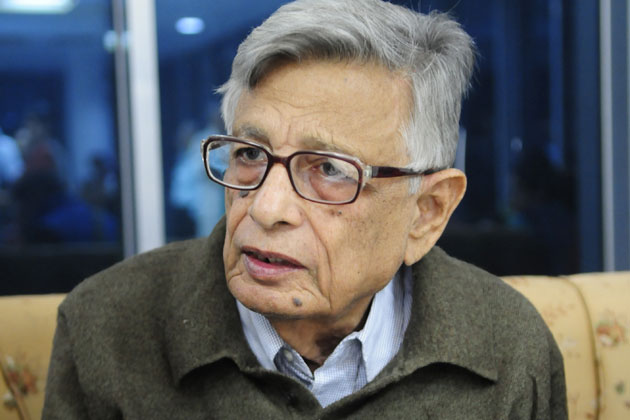- info@mintorians.org
- +91-8076203677
- Delhi, India
Irfan Habib Sb

Prof. Irfan Habib, Professor Emeritus, AMU, Aligarh
Irfan Habib (born 10 August 1931) is an Indian historian of ancient and medieval India, following the methodology of Marxist historiography in his contributions to economic history. Irfan Habib, a prominent Indian historian, has left a significant mark on the study of ancient and medieval India, particularly through his application of Marxist historiography and his contributions to economic history. His works, such as "Agrarian System of Mughal India, 1556–1707" and "An Atlas of the Mughal Empire," have become foundational texts in understanding these periods. Additionally, his role as the general editor of the "A People's History of India" series underscores his commitment to presenting a more inclusive and diverse narrative of Indian history.
Habib's staunch opposition to ideologies like Hindutva and Islamic fundamentalism is well-documented. He has been vocal in challenging attempts to distort history for political agendas, particularly during his tenure as Professor of History at Aligarh Muslim University and as a leading figure in academic circles.
Furthermore, his advocacy for secularism and his efforts to resist the "saffronisation" of history in India, particularly during the BJP government's tenure, highlight his commitment to preserving an objective and inclusive understanding of Indian history. His condemnation of the removal of chapters on Muslim rule from school textbooks reflects his concerns about the marginalization of certain communities and the perpetuation of Islamophobia through historical revisionism.
Despite facing criticism and rebuttals from political quarters, such as Murli Manohar Joshi's book, Habib continues to be a respected figure in the field of history, known for his scholarly contributions and unwavering dedication to academic integrity and social justice.
